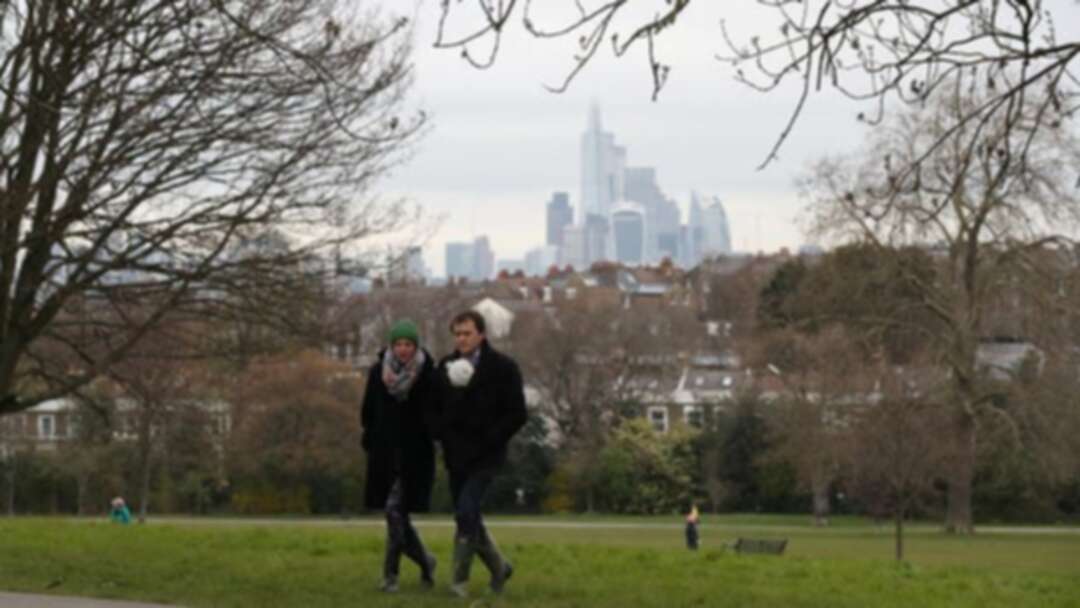-
Coronavirus restrictions in UK could last six months: Health official

The coronavirus lockdown in the UK could last for six months, a chief government doctor said. Coronavirus restrictions in UK
The lockdown, in place to slow the spread of COVID-19, may last until the fall, and life in the country may not return to normal until then, deputy chief medical officer for England, Dr. Jenny Harries said at a daily press conference yesterday.
Harries said she anticipates the numbers of cases in the UK will increase over the next week or two, and then they will evaluate whether they have managed to flatten the curve and if there is a decline in cases.
On Monday, Neil Ferguson, a professor of mathematical biology at Imperial College London, said the coronavirus is showing signs of slowing and antibody tests, which test if the virus has ever been present in a person’s body, could be ready in days.
Harries said that the UK would not be on total lockdown for six months, “but as a nation, we all have to be very responsible and keep doing what we’re doing until we’re sure we can gradually start lifting certain interventions, which will be based on our science and data.”
If efforts were not maintained, Harries warned the UK could see another spike.
In the UK, residents have been asked to halt all non-essential travel and to work from home if possible as well as limit exercise to one walk outside per day.
Harries laid out a timeline for how long restrictions in the UK may last.
“So I think three weeks for review. Two or three months to see whether we’ve squashed it, with about three to six months ideally, and lots of uncertainty in that, but then to see at which point we can get back to normal,” Harries said. “It is plausible that it could go further than that.”
In the UK, over 19,500 have been infected by a coronavirus, and 1,228 have died as of Monday. Prime Minister Boris Johnson is among those who have tested positive and is in self-isolation at his 10 Downing Street residence. UK Health Minister Matt Hancock also has tested positive for the virus and is self-isolating.
Initially, the UK said it would pursue a herd immunity strategy that sparked criticism as some said that allowing it to spread could lead to around 300,000 Britons being killed by the virus. Coronavirus restrictions in UK
However, the government quickly switched tracks and on March 19, the country’s defense ministry announced 20,000 British military service personnel would be put on standby as the country upped its efforts to combat the coronavirus. levant
source: Lauren Holtmeier levant
You May Also Like
Popular Posts
Caricature
BENEFIT Sponsors BuildHer...
- April 23, 2025
BENEFIT, the Kingdom’s innovator and leading company in Fintech and electronic financial transactions service, has sponsored the BuildHer CityHack 2025 Hackathon, a two-day event spearheaded by the College of Engineering and Technology at the Royal University for Women (RUW).
Aimed at secondary school students, the event brought together a distinguished group of academic professionals and technology experts to mentor and inspire young participants.
More than 100 high school students from across the Kingdom of Bahrain took part in the hackathon, which featured an intensive programme of training workshops and hands-on sessions. These activities were tailored to enhance participants’ critical thinking, collaborative problem-solving, and team-building capabilities, while also encouraging the development of practical and sustainable solutions to contemporary challenges using modern technological tools.
BENEFIT’s Chief Executive Mr. Abdulwahed AlJanahi, commented: “Our support for this educational hackathon reflects our long-term strategic vision to nurture the talents of emerging national youth and empower the next generation of accomplished female leaders in technology. By fostering creativity and innovation, we aim to contribute meaningfully to Bahrain’s comprehensive development goals and align with the aspirations outlined in the Kingdom’s Vision 2030—an ambition in which BENEFIT plays a central role.”
Professor Riyadh Yousif Hamzah, President of the Royal University for Women, commented: “This initiative reflects our commitment to advancing women in STEM fields. We're cultivating a generation of creative, solution-driven female leaders who will drive national development. Our partnership with BENEFIT exemplifies the powerful synergy between academia and private sector in supporting educational innovation.”
Hanan Abdulla Hasan, Senior Manager, PR & Communication at BENEFIT, said: “We are honoured to collaborate with RUW in supporting this remarkable technology-focused event. It highlights our commitment to social responsibility, and our ongoing efforts to enhance the digital and innovation capabilities of young Bahraini women and foster their ability to harness technological tools in the service of a smarter, more sustainable future.”
For his part, Dr. Humam ElAgha, Acting Dean of the College of Engineering and Technology at the University, said: “BuildHer CityHack 2025 embodies our hands-on approach to education. By tackling real-world problems through creative thinking and sustainable solutions, we're preparing women to thrive in the knowledge economy – a cornerstone of the University's vision.”
opinion
Report
ads
Newsletter
Subscribe to our mailing list to get the new updates!






















